In August, Luminate’s streaming measurement model showed that Emmy nominations were associated with a significant increase in viewership. Following the Emmy Awards on September 15, we’re now measuring the “Emmy effect” on winners in the major show categories.
Hacks: Outstanding Comedy Series
Hacks is an excellent example of how Emmy wins can earn a show new viewers. Hacks had a total of 5.4 million minutes watched in Week 37 (9/6/24-9/12/24) for season 3 but, in the week following the Emmys telecast, minutes jumped to 13.3 million – a 146% increase. Viewership continued to build in Week 39 (9/20-6/26) to 19.7 million, a 48% increase.
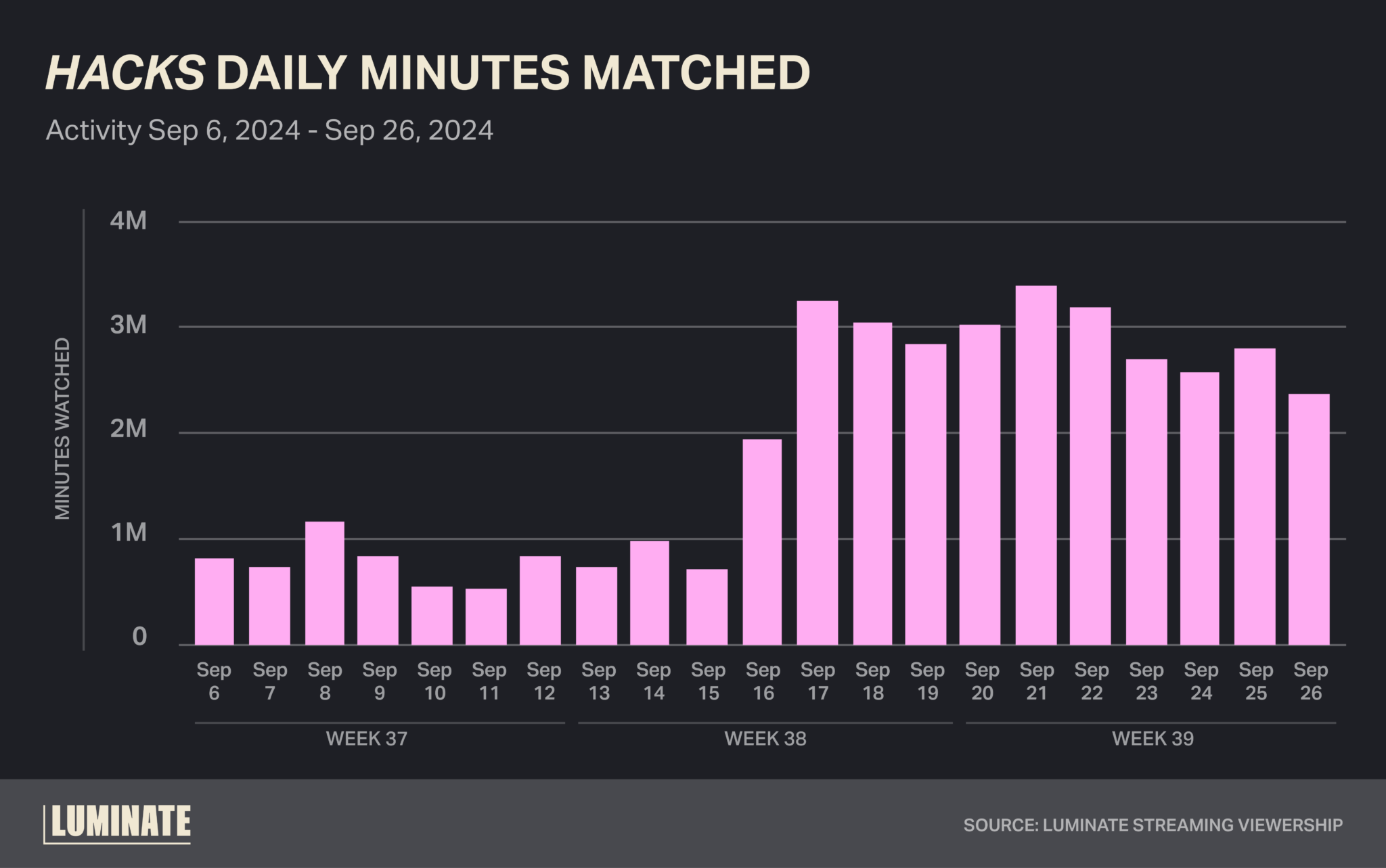
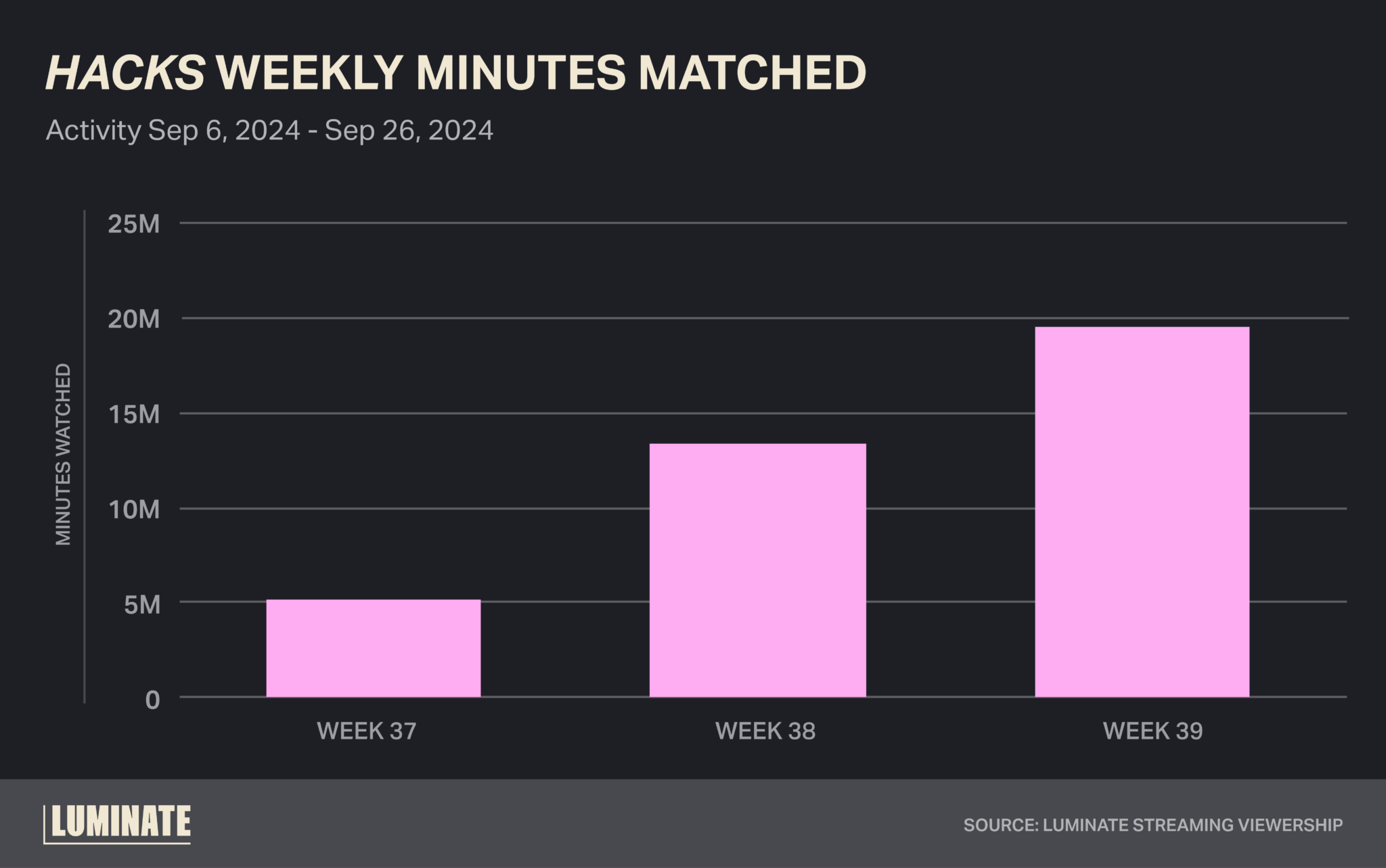
Another positive trend is the consistency of viewership across episodes. This may also have been driven by Jean Smart’s Best Actress in a Comedy Series win and the writing win for episode 3.9.
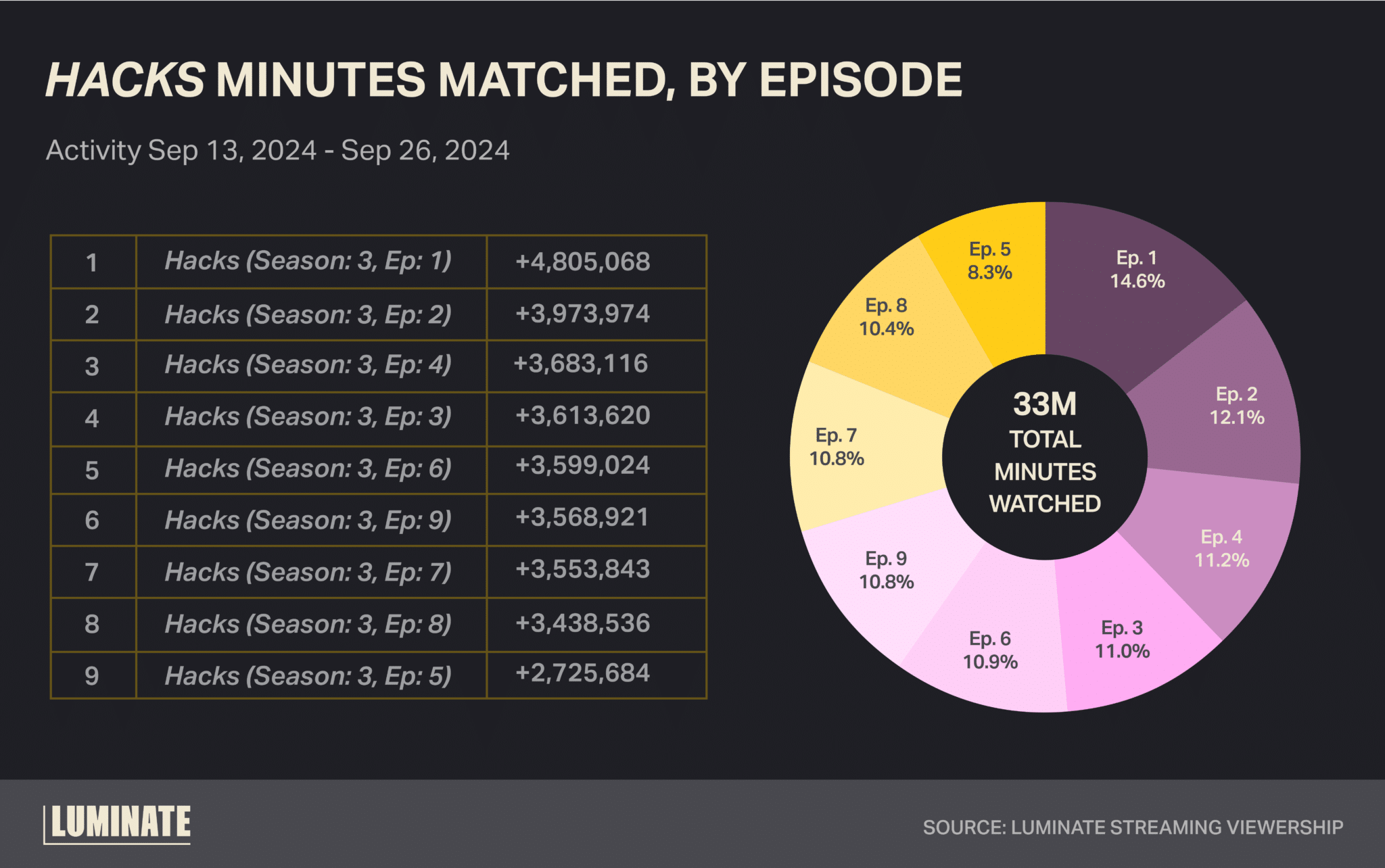
The bad news is that Max only represents 1.6% of total streaming activity YTD in 2024, so the actual numbers were not high enough to crack Luminate’s Top 50 TV chart.
Baby Reindeer: Outstanding Limited or Anthology Series
Netflix absolutely dominated this category, with acting and writing Emmys in addition to the overall win. There were already 3.3 billion minutes viewed for Baby Reindeer prior to the Emmys, so a significant bump from the awards wasn’t expected. But that’s exactly what happened.
Week 37 (9/6-9/12) had 8.4 million minutes viewed. Week 38 (9/13-9/20) increased an eye-popping 481% to 48.8 million. The following week brought another 99% minute increase.
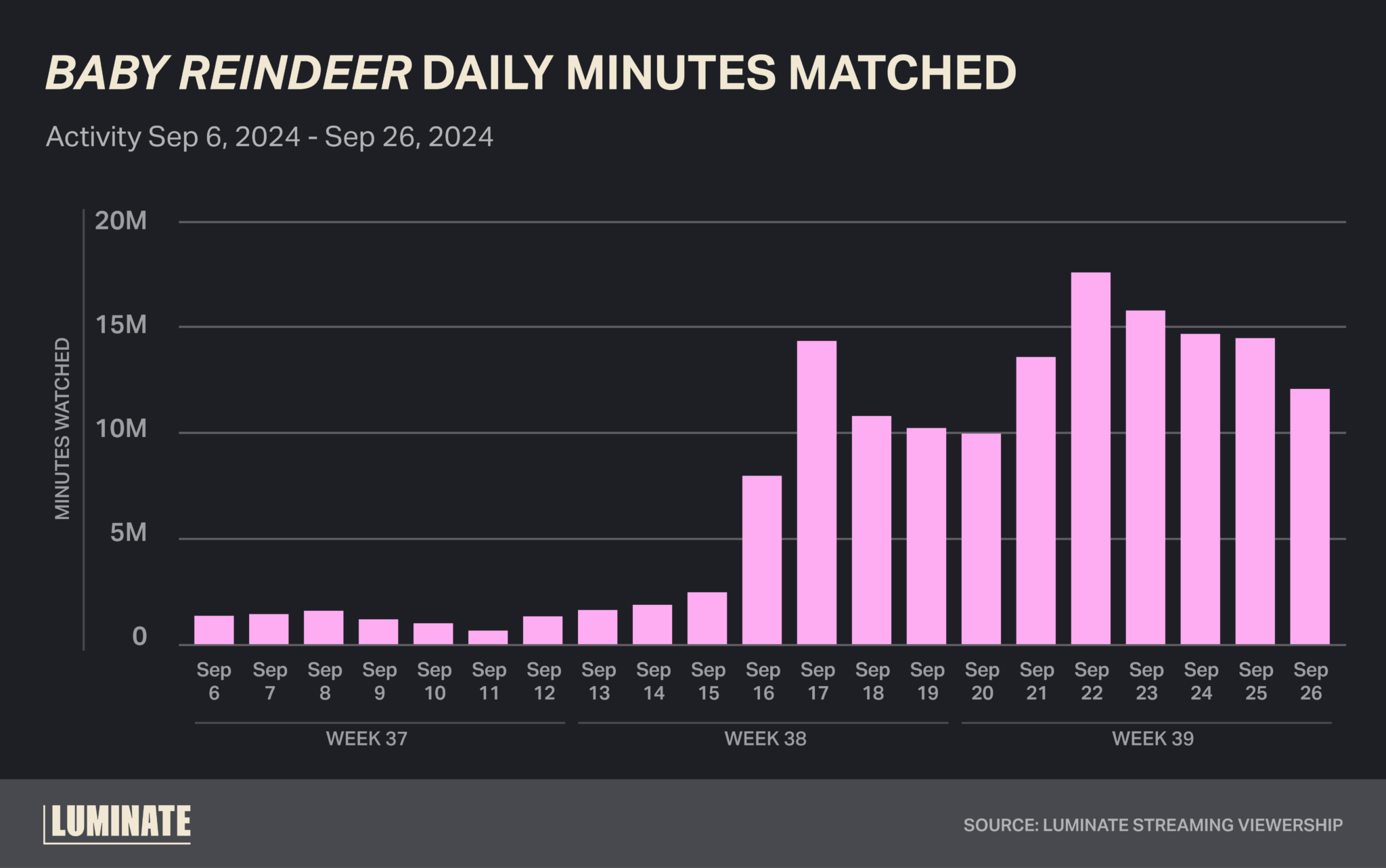
The episode trends chart indicates that most of the growth was concentrated on sampling of the qfirst episode, with lower trends on completion of episode 7.
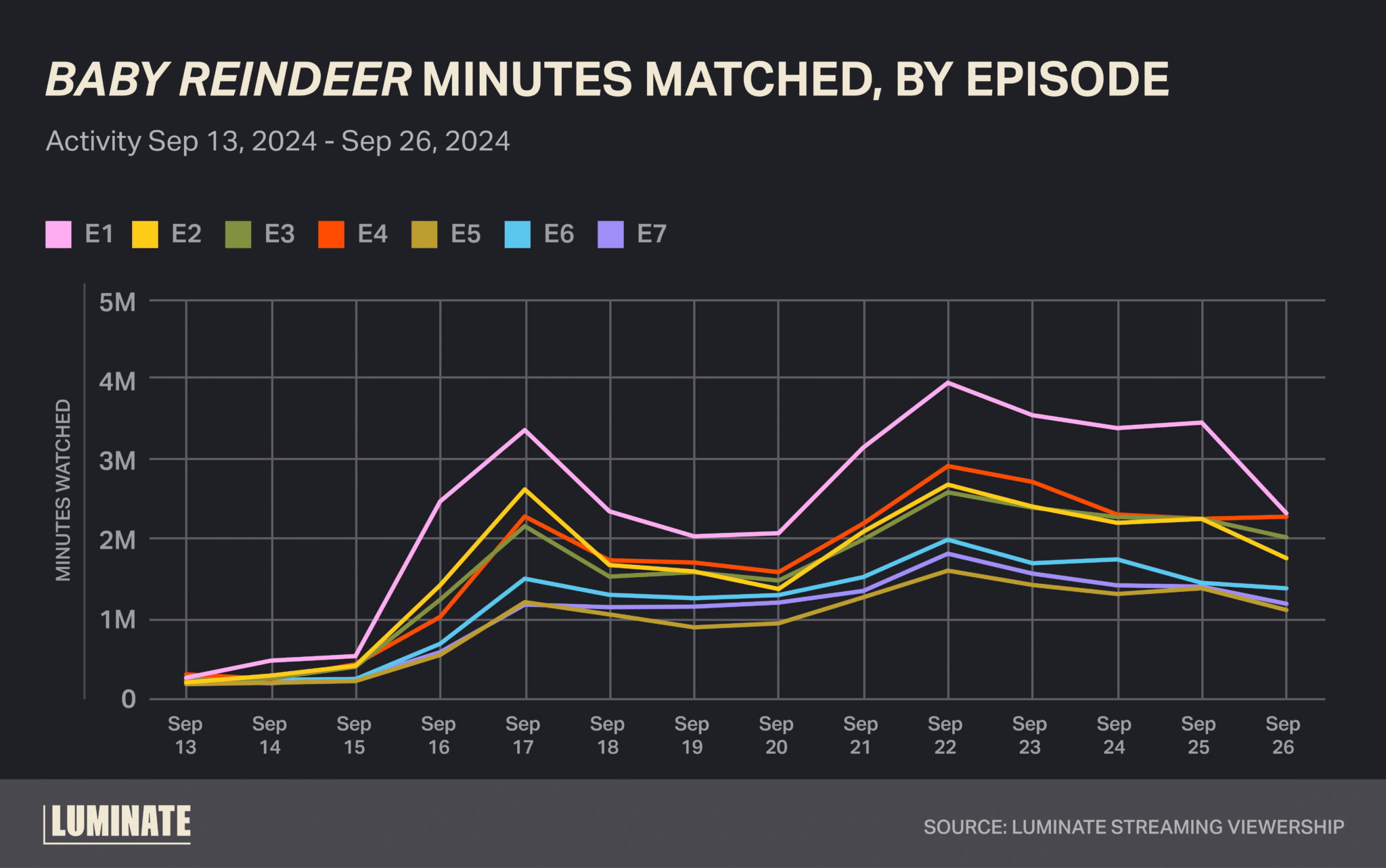
Shōgun: Outstanding Drama series
Shōgun won 18 Emmys, the most of any show. For reference, the most awarded show from last year’s Emmys was The Bear, with 10. While it’s not unusual for a high-budget, period, costume drama to make a huge splash, the fact that Shōgun‘s language ratio is about 70% Japanese makes for an unprecedented event.
Shōgun was a huge hit with 3.9 billion minutes viewed prior to the Emmys. Nevertheless, the show had a 345% increase in minutes viewed from Week 37 to 38.
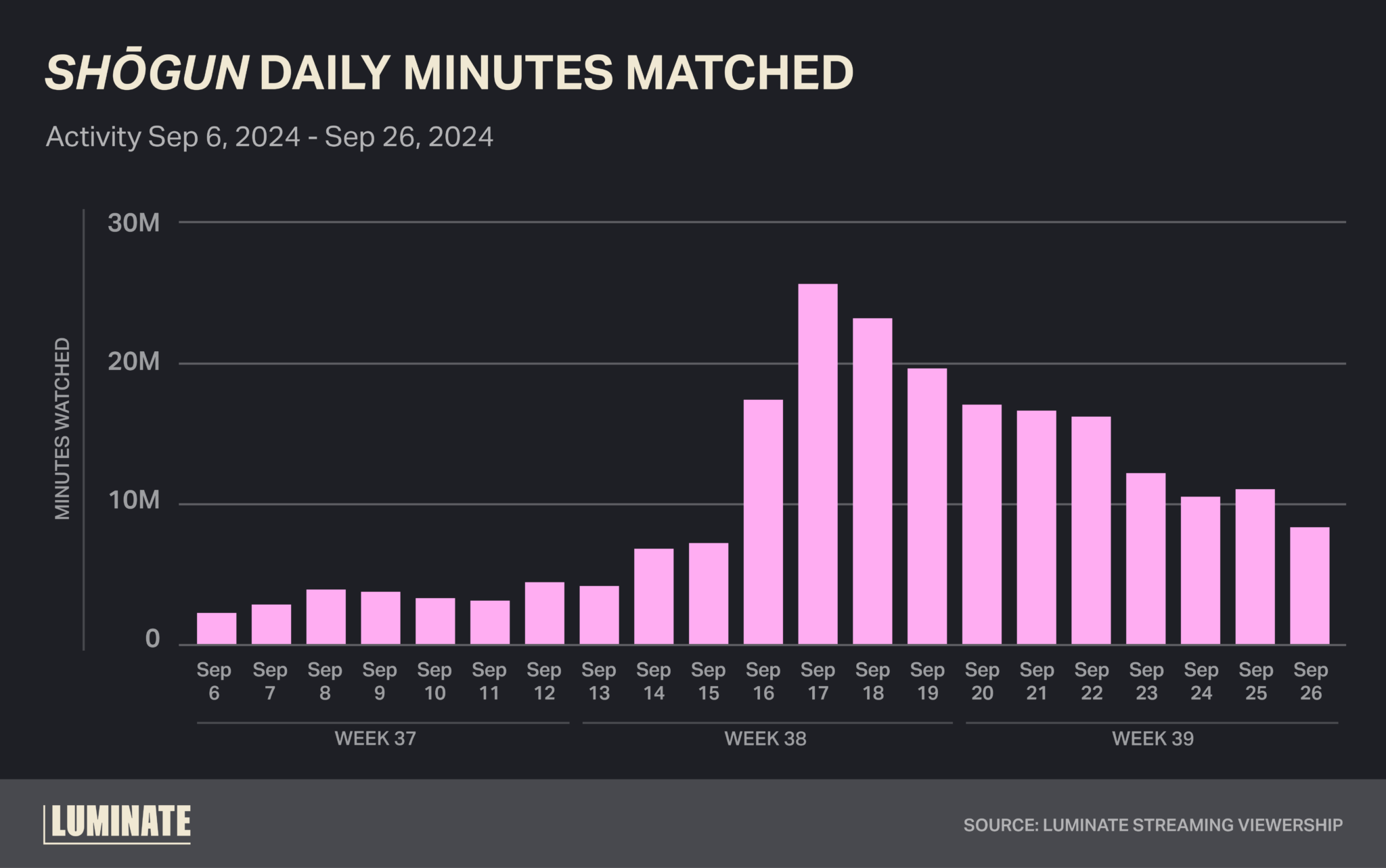
However, going into the week of 9/20-9/26, there was a decline of 12%. This makes it the only show category winner to not get an extra week of increased viewership. The reason for this may lie in the episode trends analysis, where there is a significant dropoff after the first two episodes. This may be where the show’s subtitles and the density of its plot challenge completion rates.
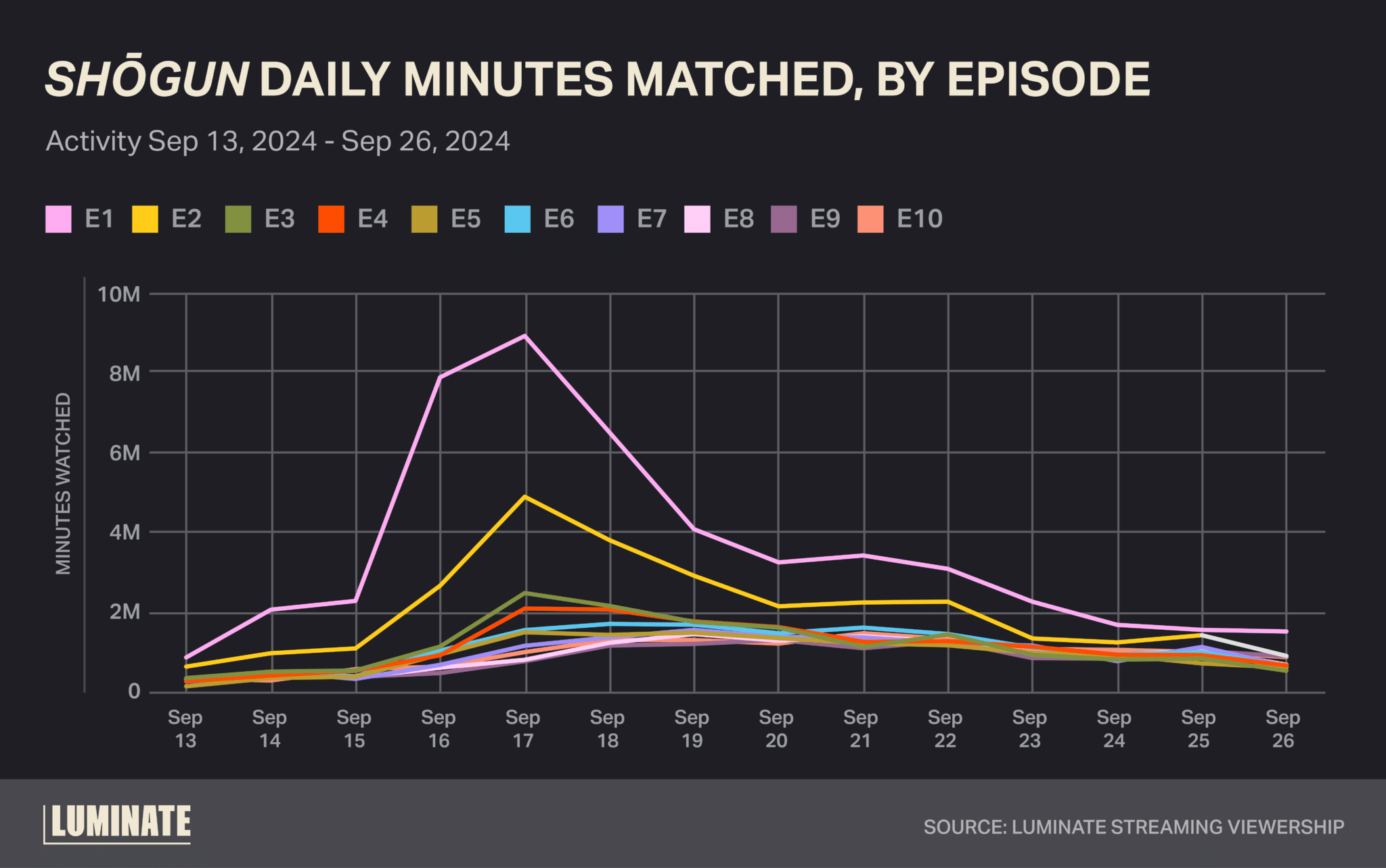
The main takeaway from this analysis is that awards are a huge benefit to streamers. They reignite interest in projects and keep momentum going into new seasons.
There is also a spillover effect for shows that didn’t win in the main show categories. For example, even though The Bear didn’t win Outstanding Comedy this year, season 2 still got a 71% increase from Week 37 to 38. In particular, Jamie Lee Curtis winning in the guest star category made episode 2.6 the most-watched episode of the season.
This year’s big winners also represent the notion that critical acclaim and commercial success are not mutually exclusive. While “peak TV” may be over, a lasting effect is a willingness by U.S. audiences to embrace more challenging material. Streaming Viewership (M) is showing the value of streaming properties not only in initial release but in its fuller lifecycle as well.

